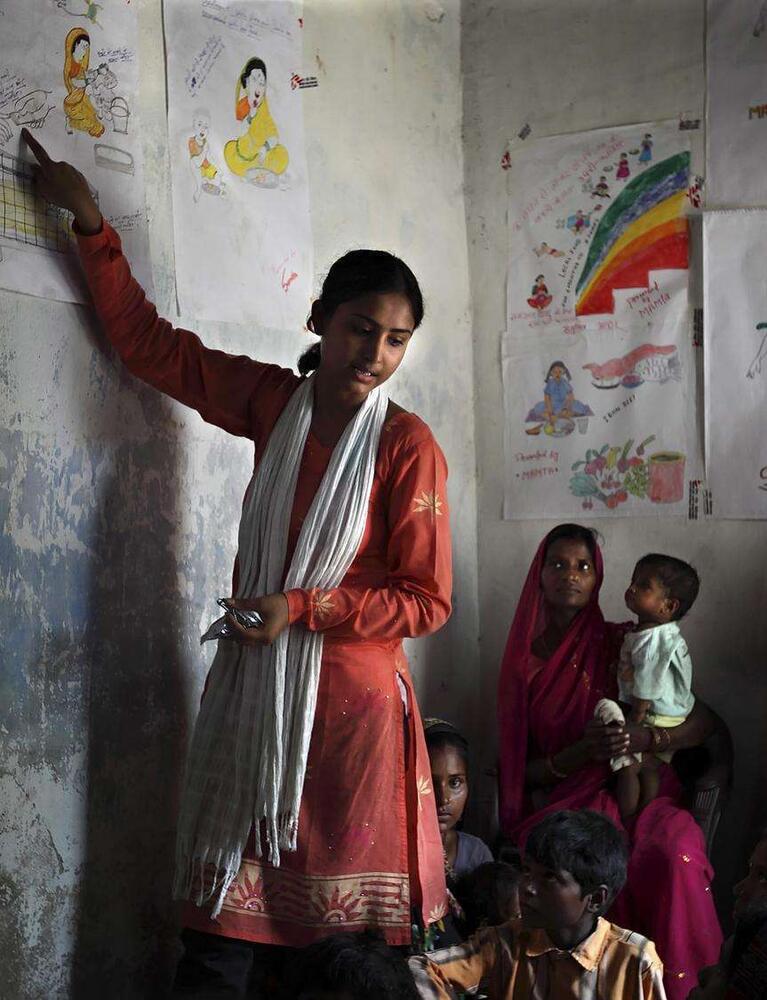India is the world's largest democracy with over 1.2 billion people. The country became independent from Britain in 1947.
[[{"fid":"713","view_mode":"default","type":"media","link_text":null,"field_deltas":{"1":{}},"fields":{},"attributes":{"height":1306,"width":2424,"style":"width: 500px; height: 269px; margin: 5px; float: right;","class":"media-element file-default","data-delta":"1"}}]]
The resulting partition of India and Pakistan resulted in large-scale violence and has resulted in three wars.
India is a rising economic powerhouse and nuclear-armed state, but also has considerable social, economic and environmental problems.
The vast Indian subcontinent is incredibly diverse in terms of its people, language and cultural traditions.
Médecins Sans Frontières/Doctors Without Borders (MSF)first worked in India in 1999. Our work in the country has provided responses to natural disasters, conflict and war, endemic/epidemic disease, healthcare exclusion and natural disasters.
[[Country-Facts]]
MSF's work in India: 2015
MSF continued to focus on improving diagnosis and treatment of HIV, TB and kala azar (visceral leishmaniasis) for people unable to access healthcare in India.
Due to poverty, social exclusion and an under-resourced health service, basic medical care is out of reach for a significant portion of India’s population. MSF works to fill some of these gaps and to increase capacity in the system.
[[nid:431]]
Mobile clinics
MSF continued to run weekly mobile clinics providing free basic healthcare to villages in southern Chhattisgarh, and to displaced people in Andhra Pradesh and Telangana.
These communities have limited access to medical services because of the ongoing, low-intensity conflict in the area.
More than 56,400 consultations were carried out and over 13,800 patients were treated for malaria.
Extending care for HIV, TB and hepatitis
MSF’s clinic in Mumbai provides psychosocial and outpatient medical care to patients with HIV, DR-TB, hepatitis B and C, and those co-infected with any of these diseases. The team also supports infection control activities for DR-TB and works closely with staff at Sewri TB hospital to increase treatment capacity.
The northeastern state of Manipur has some of the highest rates of HIV in the country, and in mid-2015, MSF began treating HIV patients co-infected with hepatitis C – more than 25 percent of all patients
[[{"fid":"826","view_mode":"default","type":"media","link_text":null,"field_deltas":{"1":{}},"fields":{},"attributes":{"height":668,"width":1000,"class":"media-element image-full-width file-default","data-delta":"1"}}]]
Fighting infectious diseases in Bihar and West Bengal
Kala azar is endemic in the Vaishali district of Bihar, and patients with HIV are particularly susceptible to the disease. After sustained lobbying by MSF, the Indian government rolled out a new first-line treatment in the form of single-dose liposomal amphotericin B in October 2014.
[[Article-CTA]]
In 2015, MSF treated 582 patients for kala azar, half the number in the previous year.
Mental healthcare in Kashmir
MSF currently runs mental health programmes in the districts of Srinagar, Baramulla, Bandipora, Pattan, Pulwama and Sopore. To increase awareness and the visibility of mental health issues, MSF worked with a Kashmiri production company to produce a TV soap opera called Aalav Baya Aalav. It was first broadcast in late 2014 and continued into 2015. The programme highlights the free counselling services run by MSF that are available to everyone.
Treating victims of sexual and gender-based violence in Delhi
A new 24-hour treatment centre for victims of sexual and gender-based violence opened in Delhi in November. Unmeed Ki Kiran clinic in the north of the city provides medical care to people who have been sexually assaulted or subjected to domestic violence, including children.
Emergency response in Chennai
Heavy rain led to widespread flooding in Chennai in December, and many people were forced from their damaged homes. MSF teams distributed 500 hygiene kits (containing toothpaste, washing powder, soaps, towels etc) and 500 shelter kits (containing ground mats, blankets etc), as well as 1,000 mosquito nets.
Find out more in our 2015 International Activity Report




